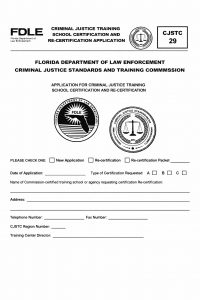Real estate transactions involve significant paperwork, and many of these documents require notarization to be legally valid. If you’re a notary public or someone involved in a real estate transaction, you might wonder whether a regular notary can handle these important documents. The short answer is yes, but with some important qualifications and exceptions.
In this comprehensive guide, we’ll explore the role of notaries in real estate transactions, which documents require notarization, when a regular notary is sufficient, and when specialized notaries are needed.
The Critical Role of Notaries in Real Estate Transactions
Real estate transactions typically involve high-value assets and legally binding agreements that transfer property ownership from one party to another. Notaries play a crucial role in this process by:
- Verifying the identity of document signers
- Ensuring signers understand what they’re signing
- Confirming that signers are acting willingly without coercion
- Preventing fraud in property transfers
- Creating an impartial record of the transaction
The notarization process helps protect all parties involved and ensures that real estate documents are legally enforceable. Without proper notarization, many real estate documents cannot be recorded with the county recorder’s office, potentially invalidating the transaction.
Common Real Estate Documents That Require Notarization
Not all real estate documents require notarization, but several critical ones do. Here’s a breakdown of the most common real estate documents that need a notary’s seal:
1. Deeds
Deeds transfer property ownership from one person to another. There are several types of deeds that require notarization, including Grant Deeds (which transfer property with implied warranties about the title), Quitclaim Deeds (which transfer whatever interest a person has in a property without warranties), and Warranty Deeds (which transfer property with explicit guarantees about the title).
All deeds must be notarized before they can be recorded in the county land records.
2. Mortgage Documents
When financing a property purchase, several mortgage-related documents require notarization. The Deed of Trust or Mortgage gives the lender a security interest in the property. Other documents like Security Agreements, outline the terms of the loan security, while the Loan Modifications document changes to existing mortgage terms.
3. Affidavits
Various affidavits may be part of real estate transactions. The Affidavit of Title confirms the seller’s ownership, while an Affidavit of Property Value declares the property’s value for tax purposes. The Non-Foreign Affidavit (FIRPTA) confirms the seller is not a foreign person subject to certain tax withholdings.
4. Power of Attorney
A Power of Attorney document allows someone to sign real estate documents on behalf of another person. This document must always be notarized to be valid for real estate transactions.

Can a Regular Notary Handle Real Estate Documents?
Yes, a regular notary public commissioned by their state can notarize most standard real estate documents. However, there are some important considerations:
1. Standard Notarial Acts for Real Estate
A regular notary can perform the basic notarial acts required for many real estate documents. These include acknowledgments (the most common notarial act for deeds and mortgages, confirming the signer acknowledges signing the document voluntarily), jurats (which require the signer to swear or affirm that the contents of the document are true), and administering oaths (required for certain affidavits and sworn statements).
2. Limitations of Regular Notaries
While regular notaries can notarize many real estate documents, they have important limitations. Regular notaries cannot explain legal terms or provide legal advice. They may not have specialized knowledge about mortgage closing documents and might not be familiar with specific lender requirements. Additionally, they cannot prepare legal documents for signers.
When Specialized Notaries Are Required
For certain real estate transactions, a regular notary may not be sufficient. Here are situations when specialized notaries are typically needed:
1. Mortgage Loan Closings
Loan closings often involve complex document packages with specific signing requirements. For these situations, many lenders and title companies prefer to work with Notary Signing Agents (NSAs). These are notaries with additional training in handling loan documents and understanding the closing process. They have typically undergone background checks and specialized certification to handle sensitive financial information.
2. State-Specific Requirements
Some states have special requirements for real estate notarizations. In “attorney states” like South Carolina and Georgia, attorneys must oversee certain aspects of real estate closings. Some states require title insurance licensing for those handling closing documents, while others may require additional certifications for notaries handling specific real estate transactions.
Notarize Your Real Estate Documents Today For Security
Best Practices for Notarizing Real Estate Documents
If you’re a notary who will be handling real estate documents, follow these best practices:
1. Verify Identity Thoroughly
Always check government-issued photo ID and ensure the name on the ID matches the name on the documents. Be alert for signs of identity fraud.
2. Keep Detailed Records
Maintain a comprehensive notary journal with all required information. Record the type of ID presented and consider taking a thumbprint if required or permitted by your state.
3. Ensure Document Completeness
Never notarize documents with blank spaces. Verify all pages are present and properly numbered, and ensure all required signatures are in place.
4. Understand State Requirements
Know your state’s specific notary laws regarding real estate. Be aware of any special certificates or wording required, and understand any restrictions on fees you can charge.
5. Avoid Unauthorized Practice of Law
Do not prepare legal documents or explain legal terms and implications. Always refer signers to their attorney, lender, or title company for legal questions.
The Rise of Remote Online Notarization for Real Estate
Many states now allow Remote Online Notarization (RON), which enables notaries to verify identities and witness signatures via audio-visual technology. For real estate transactions, RON is increasingly accepted for many real estate documents, though special RON certification is typically required. Additional security measures and identity verification are necessary, and state laws vary significantly regarding RON for real estate.
If you’re interested in performing RON for real estate documents, check your state’s specific requirements and obtain the necessary certification and technology.
Potential Consequences of Improper Notarization
Improperly notarized real estate documents can have serious consequences. Documents may be rejected by the county recorder, and property transfers could be invalidated. Lenders might refuse to fund loans if documentation isn’t properly notarized. For notaries, the consequences can include facing liability for negligence, and their notary commissions might be suspended or revoked.
Given these potential issues, it’s crucial for notaries to understand their responsibilities and limitations when handling real estate documents.
Conclusion: Yes, With Proper Knowledge and Caution
In conclusion, regular notaries can notarize many real estate documents, provided they follow all applicable state laws and understand the limitations of their role. For more complex transactions like mortgage closings, specialized notaries such as Notary Signing Agents are often preferred or required.
If you’re a notary who wants to work in real estate, consider obtaining additional training and certification to expand your knowledge and marketability. Always stay current with your state’s notary laws and real estate requirements to ensure you’re providing valid, legal notarization services.
Disclaimer: This article provides general information about notarizing real estate documents. Laws vary by state, and this information is not legal advice. For specific guidance related to your situation, consult with a qualified attorney or your state’s notary regulating authority.









